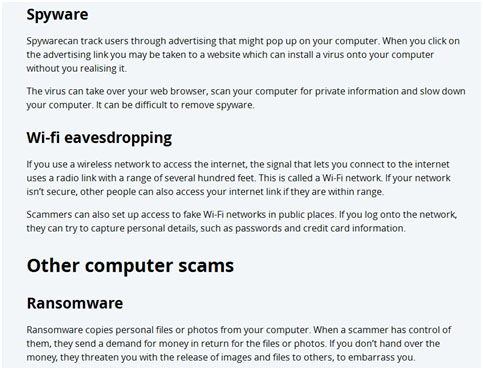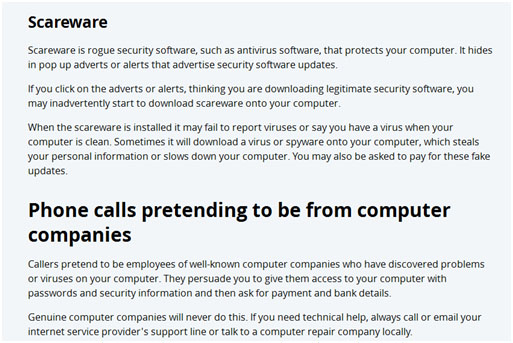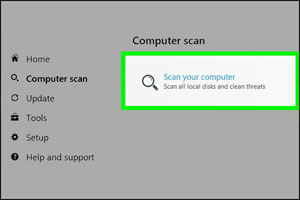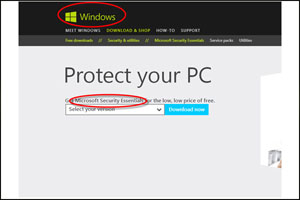Computer Virus Scams
What is computer virus scam?
As features and functionality in the computer world continue to evolve, scams involving malware are also increasingly released into the market by intruders. The motive behind the prevalence of computer virus scams is to trick users by supplying fake antivirus software, which can cause critical system failures—or by calling users and claiming to be from a technical support company offering free services. Common names used by scammers include Windows Technical Services, PC Windows Support, Virtual PC Admin, and Microsoft.
Computer virus scams involve deceptive practices where scammers create a false sense of urgency by claiming that a victim's computer is infected with a virus or malware. Typically, the scam unfolds through pop-up warnings, alarming messages, or unsolicited phone calls, with fraudsters posing as tech support representatives. These scammers pressure individuals into providing remote access to their computers, purchasing unnecessary software, or revealing sensitive information under the pretense of fixing the alleged virus issue. In reality, these warnings are often completely fabricated, and the scammers aim to exploit the victim's fear to gain financial benefits or access to personal data. To avoid falling victim to computer virus scams, individuals should be skeptical of unsolicited communications, independently verify the legitimacy of tech support contacts, and use reputable antivirus software to safeguard their systems.
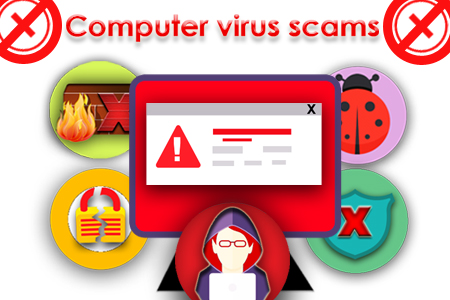
How scams got implemented?
The intruder, who claims to be a technical support person, will trick you by saying that your computer has a virus and that you need to download software to resolve it. This gives them remote access to your computer. Later, they will ask you to voluntarily update your system with advanced software to prevent it from crashing, for which you’ll be asked to pay a significant amount of money. If you log on to a web page created by the intruder for this software, your credentials may be extracted.
Scams are implemented through various deceptive strategies designed to exploit individuals or organizations. Cyber scams often involve phishing emails or messages that trick recipients into revealing sensitive information, clicking malicious links, or downloading malware. Phone scams rely on social engineering, where scammers pose as trusted entities to extract personal or financial details. Online scams can also take the form of fake websites, enticing victims to make payments or disclose information.
Common elements include creating a false sense of urgency, exploiting trust, and manipulating emotions. Scammers use psychological tactics to make their targets act hastily without questioning the legitimacy of the situation. Whether through impersonation, false claims, or the promise of unrealistic rewards, scams rely on manipulating human behavior. Vigilance, awareness, and education are crucial in combating scams and protecting against their implementation.
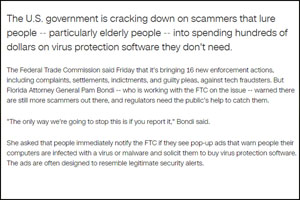
How to know your computer got infected and differentiate the scam programs?
? It takes longer than usual for your computer to start, and it may restart on its own frequently without logging in.
? Programs take too much time to respond.
? Files and data may have disappeared.
? Your system and programs suddenly crash constantly.
? The homepage you set in your web browser appears differently.
? Web pages are slow to load.
? Programs run without your control.
? Fake scammer-made spyware often generates urgent alerts to push users to click on them.
? You may be flooded with a large number of pop-up alerts, even when you are not online.
? These alerts may also be sent to other users from your address.
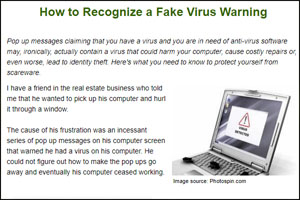
How to get protected?
-
Never click on unusual pop-up alerts or attempt to open them. You can press Control + Alt + Delete to view a list of currently running programs and end the pop-up alert from that list.
-
Use reliable anti-spyware software and ensure your computer is updated with the latest antivirus software.
Never trust the contact details provided in a pop-up message. Instead, search online to find your antivirus vendor's official contact information.
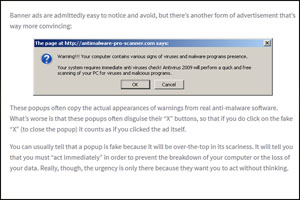
Where to register complaint on this computer virus scams?
"ftc.gov/complaint" is a reliable government-run website specifically designed to address online scam issues.
You can also register your scam complaints at "www.ripandscam.com," which will provide you with necessary solutions.
Computer viruses tend to damage your system, while computer virus scams are aimed at swindling money and causing harm to victims. Since Microsoft is a well-known brand, scammers often exploit its name by calling victims and claiming to be from Microsoft. They create a false sense of urgency by stating that the user's system is infected with malicious software and needs immediate fixing. Naïve users, who lack knowledge about such fake claims and calls, often agree to the scammers' statements without proper verification.
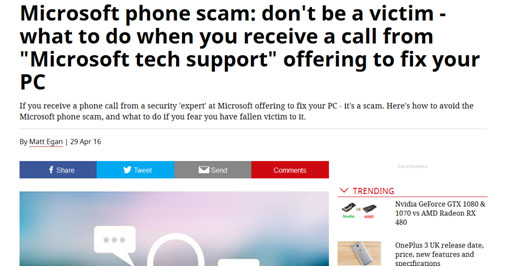
Scammers usually present themselves as security experts calling from Microsoft. This scam is popularly known as the "Microsoft phone call scam." Scammers approach victims in a way that appears legitimate. They claim that the user's personal computer or laptop is infected with a virus. If the victim believes their words, the scammers request remote access to the system, through which they obtain all the victim’s personal data. In some cases, the scammer asks the victim to download a software product supposedly meant to protect the system from virus attacks, but the software is actually embedded with malicious code designed to damage the resources on the victim’s PC or laptop.
A more straightforward method scammers adopt is asking for money in the name of a "fixing fee." They claim the fix is permanent and that no future virus attacks will harm the user's computer or laptop. These are just a few of the tactics scammers use to swindle money from victims who believe their fake phone calls.
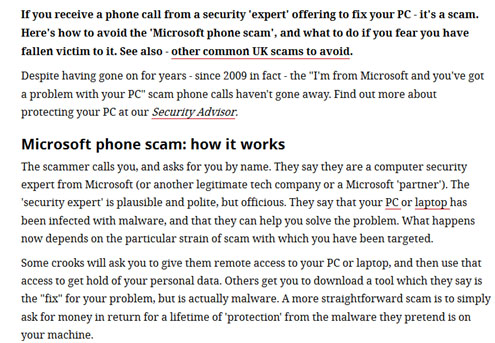
Computer viruses are programs designed to affect a target computer. Most users are unaware of what computer viruses are and how they spread. The image below provides information on what computer viruses are, how they spread, how to avoid them, and what to do if your system is attacked by one.
It is vital for every user to understand these details about computer viruses, as many scammers take advantage of such threats to scam users who are unaware of these malicious programs.
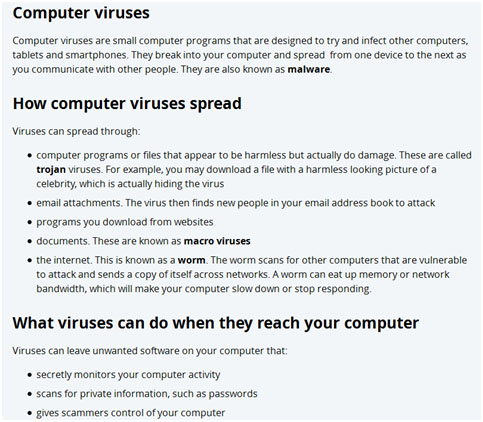
There are many types of computer virus scams, such as spyware and Wi-Fi eavesdropping, that can affect your system and data. There is always a root cause behind how a computer virus attack occurs. It is essential for all users to have basic knowledge of the different types of computer virus attacks.
